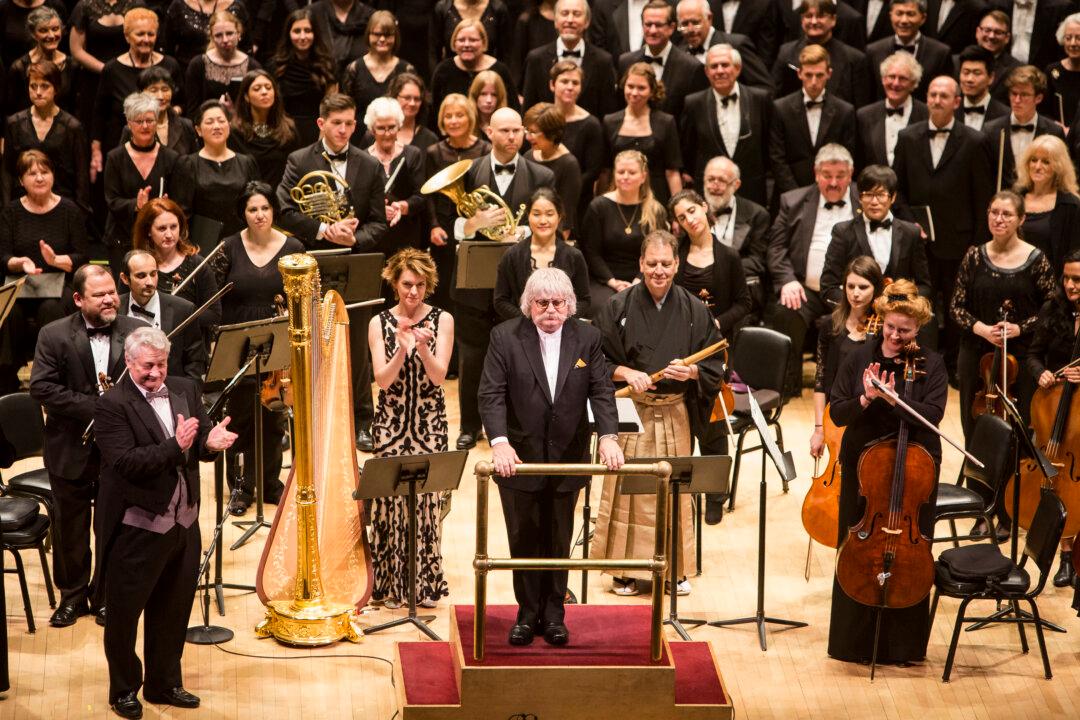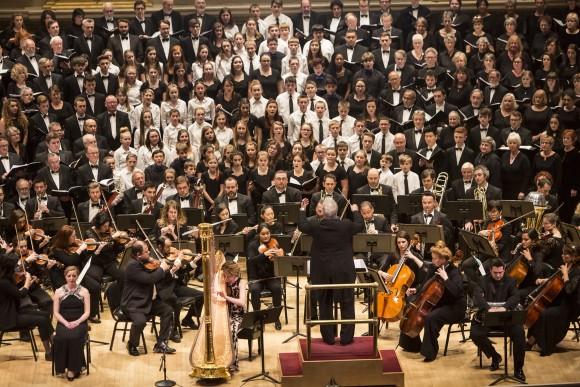NEW YORK—Welsh composer Karl Jenkins’s music is considered by some to be too popular to be classical, and he’s just fine with that.
Jenkins wants to write music that, first of all, pleases him, and is something that others can enjoy. Beyond that, he tends to resist categorization.
“I write pretty accessible, tuneful music,” Jenkins said. “Music has a worth and it’s not subject to fashion. ... [I want] to make an emotional connection. Song can move people.”
He works with memorable melodies to create an emotive effect. The music is also accessible for all ages, he said, evidenced by the fact that children often sing his works.
In fact, he’s one of the most performed living composers in the world. Last summer, his work “The Armed Man: A Mass for Peace” had its 2,000th performance since it premiered in the year 2000, which averages out to about two performances a week for the past 16 years. His success has been met with polarized responses, and Jenkins takes it all in stride.







